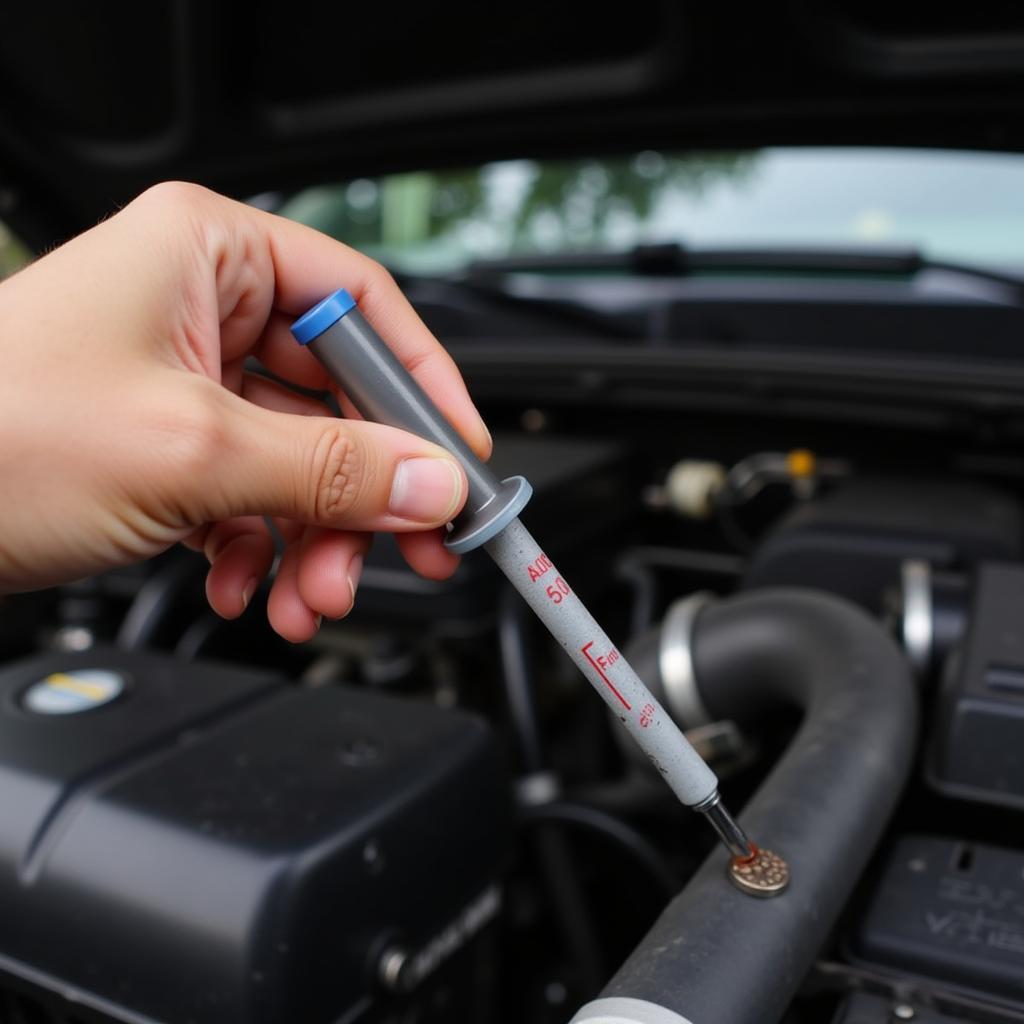Do Michigan Cars Have More Problems? It’s a question that often pops up, especially when considering the harsh winters and road salt prevalent in the state. While Michigan’s climate certainly poses challenges to vehicles, the idea that cars from Michigan inherently have more problems isn’t necessarily a universal truth. Let’s delve deeper into the factors contributing to vehicle issues in Michigan and separate fact from fiction.
Understanding the Impact of Michigan’s Climate on Cars
Michigan winters are notorious. Freezing temperatures, snow, ice, and, importantly, road salt, take a toll on vehicles. Road salt, while essential for safe winter driving, is corrosive. It accelerates rust formation on the undercarriage, brake lines, and other exposed metal parts. This can lead to costly repairs down the road. However, this isn’t unique to Michigan. Any region that experiences harsh winters and uses road salt will face similar challenges.
How Road Salt Affects Your Car
Road salt is highly corrosive. It attracts moisture, creating an electrolyte solution that accelerates the oxidation process, leading to rust. This is why cars in Michigan, and other states that use road salt, are more susceptible to rust-related problems.
Beyond Rust: Other Climate-Related Issues
Beyond rust, Michigan’s fluctuating temperatures can also impact other car components. Battery life can be shortened by extreme cold, and tire pressure can fluctuate significantly, affecting handling and fuel efficiency. These issues, while potentially inconvenient, are not specific to Michigan-made cars.
Are Michigan-Made Cars Inferior?
The notion that cars manufactured in Michigan are inherently more problematic is a misconception. The state is home to major automotive manufacturing plants, and the cars produced there meet the same quality standards as vehicles produced elsewhere. The key difference lies in the environment they’re exposed to, not their origin.
Maintaining Your Car in Michigan: Tips for Longevity
So, what can you do to protect your car from the harsh Michigan winters? Regular maintenance is crucial.
- Regular Washing: Frequent car washes, especially during winter, help remove road salt and minimize its corrosive effects.
- Undercoating: Applying an undercoating can provide an extra layer of protection against rust.
- Rustproofing: Consider professional rustproofing for added protection.
- Inspections: Regular inspections can identify potential problems early on.
“Regular maintenance is your best defense against the harsh realities of Michigan winters,” advises John Smith, a seasoned automotive technician with over 20 years of experience. “It’s far less expensive to prevent problems than to fix them later.”
Do Michigan Cars Have More Problems Compared to Cars from Warmer Climates?
While Michigan cars aren’t inherently flawed, they are subjected to more demanding conditions. Compared to vehicles in warmer climates, they are more likely to experience rust-related issues and other problems stemming from extreme temperature fluctuations. This doesn’t mean they’re inferior, but it does underscore the importance of proactive maintenance.
“Don’t underestimate the impact of regular washing,” adds Maria Garcia, a leading automotive engineer. “Removing that road salt is crucial for preventing corrosion and extending the life of your vehicle.”
Conclusion: Michigan Cars and Maintenance
Do Michigan cars have more problems? Not inherently. But the challenging climate does demand more attention to maintenance. By taking proactive steps to protect your vehicle, you can mitigate the impact of harsh winters and road salt, ensuring your car remains reliable and roadworthy for years to come. For personalized advice and assistance with your vehicle maintenance needs, feel free to contact AutoTipPro at +1 (641) 206-8880 or visit our office at 500 N St Mary’s St, San Antonio, TX 78205, United States. We’re here to help you keep your car in top condition, no matter the weather.






Leave a Reply